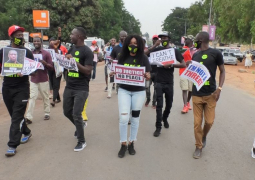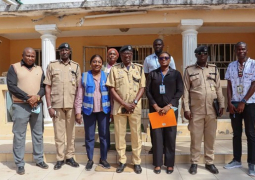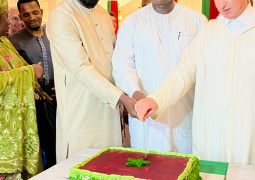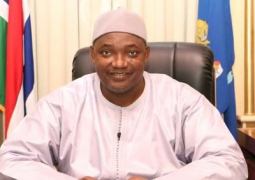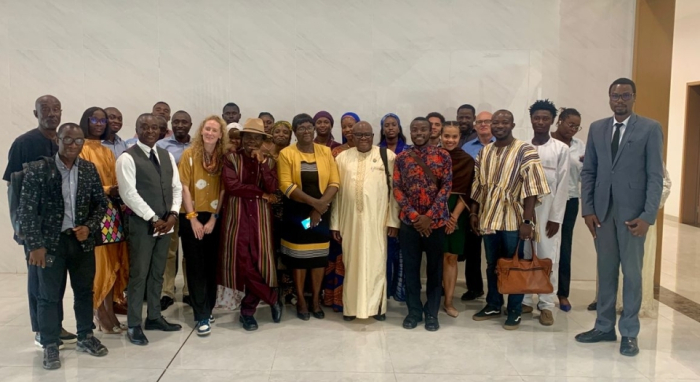
“Transnational organised crime (TOC) is a vicious threat to peace, security and sustainable development. Wherever it occurs, it fundamentally requires actions and collaborative efforts,” Executive Director Hannah Forster said. “There have to be coordinated efforts by all national and international organisations to combat organised crimes in all its numerous forms.”
Mrs Forster was addressing a comprehensive mélange of human rights organisations and people from various walks of life at adialogue on combating migrant smuggling, human trafficking and contemporary forms of slavery in Africa held on Friday 18 July 2025 at the International Conference Centre in Senegambia.
The dialogue - held to discuss TOC and its human rights violations and effects on peace, security and development to get the African Commission actupon it - was spearheaded by the Regional Organised Crime Observatory Coordinator in West Africa for ENACTand Institute for Security Studies (ISS),Dr Feyi Ogunade.
ENACT – Enhancing Africa’s response to transnational organised crime –is a project funded by the European Union and implemented by the Institute for Security Studies (ISS) in partnership with INTERPOL and the Global Initiative Against Transnational Organised Crime (GI-TOC).
“There are grave concerns concerning migrants, contemporary forms of slavery, human trafficking among others. These continue to strip away the safety, dignity and futures of too many vulnerable and marginalised groups in Africa, disproportionately affecting those living within the margins, including women, children, refugees, migrants. And these human rights issues persist with impunity despite the collective knowledge and collaborative efforts to combat them.”
Mrs Forster said while there are some instruments and provisions in international conventions to protect persons from these crimes, the laws are hardly implemented or enforced by state authorities.
“I just want to emphasise that a whole lot of our governments are doing what they can but we also need to identify the fact that lack of political will is something that we would have to deal with. Because if we do have the national laws, we don’t have the national enforcement involved and we are not making any progress -people continue to face the different indignities, I think we need to do a lot more to ensure that this trend does not continue,” she appealed.
Other speakers at the dialogue roundly condemned TOCs, which are organised cross-border crimes such as human trafficking, migrant smuggling, drug trafficking, arms smuggling and contemporary forms of slavery, saying they pose a significant threat to human rights across Africa, undermining governance, security and development.
“The African Commission is deeply concerned by the grave human rights violations…of these crimes committed, which affect the very dignity and liberty of our people,” said Dr Francis M. Magare – Senior Legal Officer of the African Commission for Human and People’s Rights. “We must reaffirm Africa’s commitment at the Commission’s mandate to end these egregious practices and safeguard the fundamental rights of all individuals wherever they may be.”
The Executive Director of National Agency Against Trafficking in Persons (NAATIP) of The Gambia, Isatou Dabo, highlighted the impressive strides NAATIP has made over the years to fight human trafficking and protect victims of organised crimes.
“Migrant smuggling, human trafficking and contemporary forms of slavery are not only criminal offences, they are enduring hassles on the very foundation of human dignity,” said Michael Nyanka – Deputy Executive Director of Institute for Human Rights and Development in Africa. He added that Africa serves as both a base and a transit point for human trafficking to Europe and other parts of the world.
UNHCR’s Associate Refugee Status Determination Officer Raffaella Chevre, who moderated the dialogue, said concerted efforts must be taken to prevent human trafficking and the root causes of migration.
Dr Ogunade, ISS Regional Organised Crime Observatory Coordinator for West Africa, continued his sincere call on the African Commission to extend its mandate to include TOCs and adopt a more systematic and comprehensive approach including guidelines to address the human rights implications of TOCs.


